Decentralized futures exchanges offer a way to engage in futures trading without a central authority.
Unlike their centralized counterparts that rely on intermediary control, decentralized exchanges (DEXs) operate on a blockchain, ensuring peer-to-peer transactions that elevate security and transparency.
You enjoy several intrinsic advantages When trading futures contracts on a decentralized platform. Y
Our transactions are secure and transparent due to the cryptographic nature of blockchain technology, as all contract terms and trades are recorded openly on the network.
Additionally, DEXs typically impose lower fees than traditional exchanges, as the overhead costs associated with central governance are eliminated.
This article focuses on what makes a decentralized exchange stand out, especially concerning futures trading, to help you identify the best-decentralized futures exchanges that align with your trading strategy and security requirements.
Best Decentralized Futures Exchanges
HyperLiquid
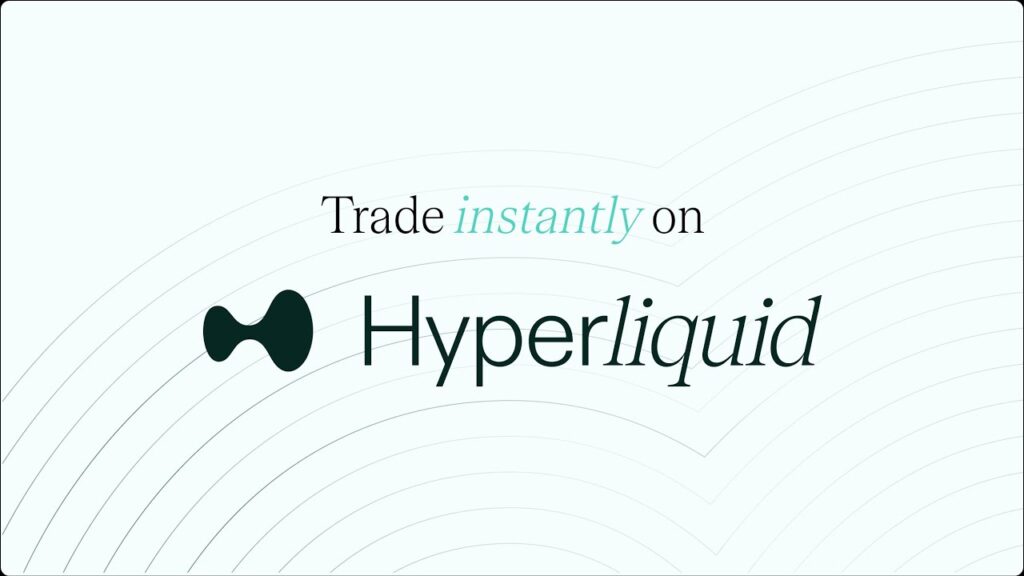
HyperLiquid positions itself as a formidable player in decentralized finance (DeFi), setting the stage as a decentralized exchange (DEX) that not only facilitates on-chain trades but also presents an array of trading products.
Among its offerings are the NFT index, allowing for diversified exposure to the NFT market, hyperps, and HLP1, which combine the advantages of various DeFi mechanisms.
Advantages of HyperLiquid:
- Speed: You benefit from blazing-fast order matching and nearly instant finality.
- Fees: Enjoy trading with zero gas fees and competitively low trading fees.
- Markets: HyperLiquid provides unique and diverse markets utilizing reliable oracles from Chainlink and Pyth for price feeds.
- Community: It heralds an open-source platform with community-owned liquidity, ensuring transparent operations.
As for its performance and acclaim within the crypto ecosystem, HyperLiquid boasts a trading volume surpassing $50 billion and maintains over 301 markets. More than 87,500 fellow traders support your trading experiences, and the platform has produced over 59 million blocks.
Liquidity providers and traders alike are drawn to HyperLiquid’s automated market maker (AMM) system, smart contract security, and ethos of decentralized governance, further solidifying trust in the platform.
Plus, with endorsements from heavyweight investors like Binance, Pantera Capital, Jump Crypto, and Mark Cuban, your confidence in their security and potential for growth is well-placed.
Remember, when trading or providing liquidity on HyperLiquid, you operate within a secure DEX ecosystem, leveraging the best blockchain technology to ensure a seamless crypto trading experience.
dYdX
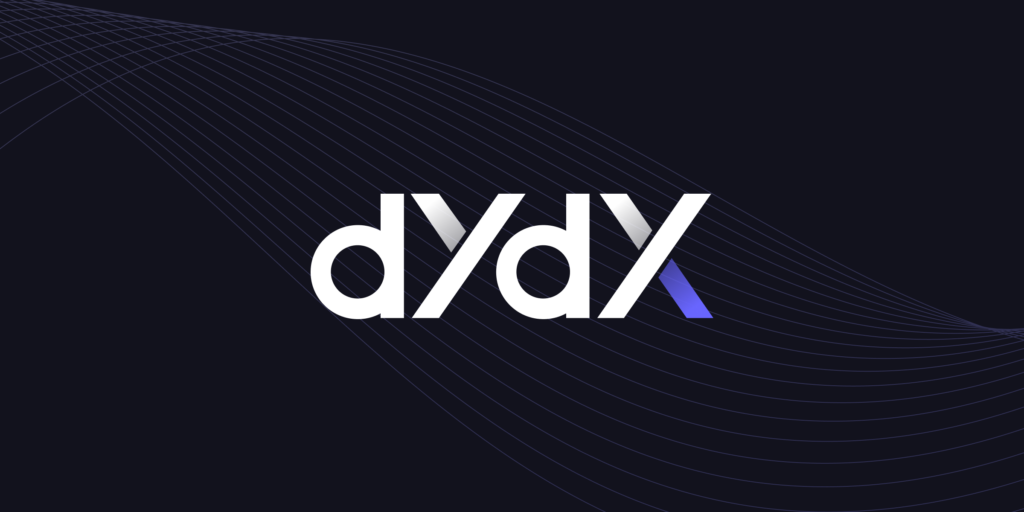
dYdX stands out as a decentralized derivative protocol with a strong focus on margin trading and perpetual contracts.
For you as a trader looking for the functionality and speed of centralized services without sacrificing decentralization, dYdX presents an empowering platform.
Leveraging StarkWare’s StarkEx scalability engine, dYdX brings to your disposal the scalability and performance typical of centralized exchanges.
It features a fully decentralized on-chain order book and matching engine, is resistant to Miner Extractable Value (MEV), and provides spot, perpetual, futures, and options markets without relying on intermediaries.
The native DYDX token is integral to the dYdX ecosystem. As a holder, you gain governance rights, allowing you to contribute directly to the future direction of the protocol. Staking DYDX accrues rewards and offers enhanced user capabilities.
Here’s a snapshot of dYdX’s offerings:
- Advanced Trading: Supports a range of assets,s including BTC, ETH, LINK, UNI, AAVE, and more.
- Leverage: Provides up to 20x leverage, enhancing your trading potential.
- Fee Structure: Makers enjoy low to zero fees, with a max of 0.1% for takers.
Their performance is impressive, with a total value locked exceeding $1 billion, making it a leading protocol by volume.
Over 100,000 trades pass through dYdX daily, totaling more than $2.5 billion monthly. This popularity is also backed by leading investors such as a16z, Polychain, and Paradigm, securing its position in the market.
Your trading experience on dYdX is robust and multifaceted, made possible by continuous innovation and dedicated support from its investors and user community.
GMX
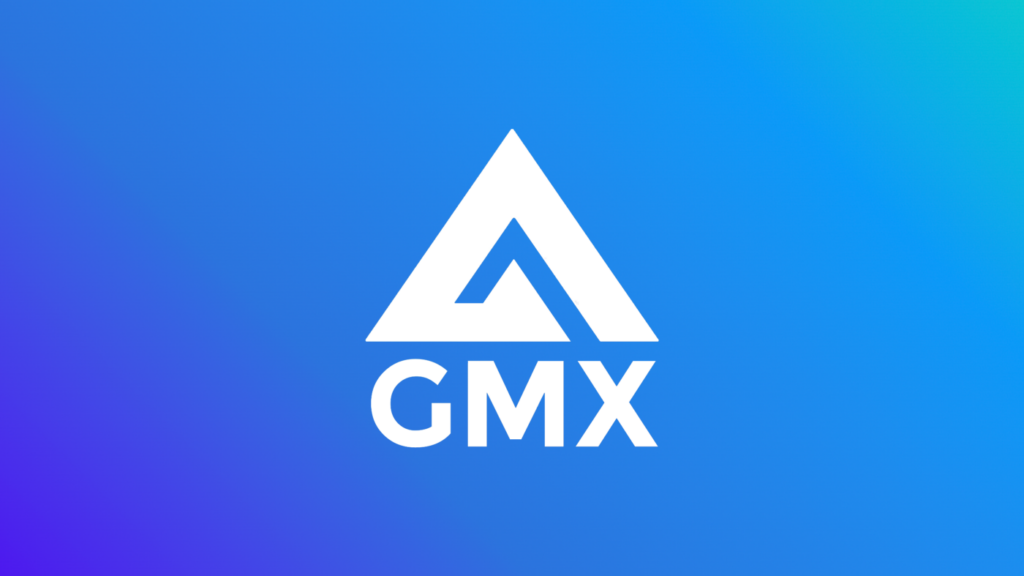
GMX is a significant decentralized derivatives and spot exchange, debuting in 2021 and swiftly ascending as a forerunner in the decentralized finance sector.
Notably, with a user-friendly interface, GMX offers a broad range of supported assets, and it maintains a reputation for low fee structures and impressive throughput performance.
Key Features:
- Intuitive User Interface: Crafted for ease of use, allowing you to navigate and transact smoothly.
- Diverse Asset Support: Trade popular cryptocurrencies like BTC, ETH, AVAX, DOGE, and LINK.
- Competitive Fees: Enjoy trading with a mere 0.1% fee per trade.
- Shared Margin Across Assets: Your universal margin account lets you spread margin over various positions and assets.
- Adaptive Borrowing Fee: Fees adjust dynamically in line with the asset and prevailing market conditions.
- GMX Token Perks: Holding GMX tokens allows you to shape governance decisions, secure trading discounts, and accrue rewards.
Performance Highlights:
- Market Dominance: GMX encapsulates a total value locked (TVL) nearing $700 million, a testament to its dominance in the derivatives arena.
- Leveraged Trading & No KYC: You can trade on leverage without needing KYC, accommodating a broader user base.
- Oracle Powered Pricing: Multiple oracles work in consort to furnish precise, real-time data, diminishing risks associated with price slippage and untimely liquidations.
- dYdX Rivalry: GMX stands as a stout competitor to dYdX, differentiating itself with a unique consensus mechanism and trading model.
This exchange proposition offers a platform to trade confidently, backed by real-time data and a sustainable fee model, ensuring a transparent and efficient trading experience.
Kwenta
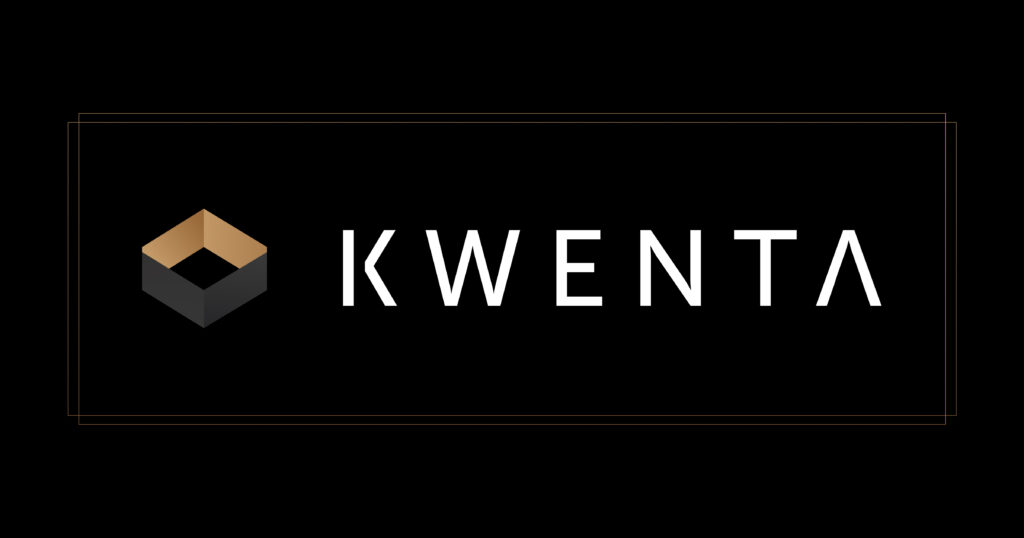
Kwenta is a cutting-edge platform designed to trade various digital and traditional assets. It stands out in decentralized finance by offering low fees and speedy confirmations.
By leveraging the Synthetix protocol, Kwenta enables you to create and trade synthetic assets, bridging crypto and conventional markets.
The platform is enhanced by Optimism, a layertwo2 scaling solution for Ethereum. This integration empowers Kwenta to offer reduced transaction costs and accelerated transaction speeds, augmenting your trading experience.
Notable Features of Kwenta:
- Synthetics Creation: Built on the robust Synthetix protocol.
- Optimism Powered: Utilizes Optimism for efficiency.
- Asset Variety: Access to an array of on-chain and real-world assets, including commodities, forex, and cryptocurrencies.
- Leverage Options: Trade with up to 50x leverage.
- Liquidity: Ensures deep market liquidity.
Kwenta has attracted considerable attention and liquidity within the decentralized finance sector. Currently, the total Value locked (TVL) on Kwenta exceeds $2 billion.
You can trade over 100 assets to diversify your portfolio, such as sUSD, sBTC, sETH, sLINK, sAAPL, and sXAo.
As for accessibility, Kwenta integrates seamlessly with various wallets, allowing you to connect with MetaMask, WalletConnect, Coinbase Wallet, or Ledger. This symbiosis ensures that you can manage and trade assets securely and conveniently.
The platform’s credibility is underpinned by the success of the Synthetix protocol, which has achieved over $20 billion in cumulative trading volume. This partnership reflects Kwenta’s commitment to providing a trusted, high-performance trading environment.
Drift
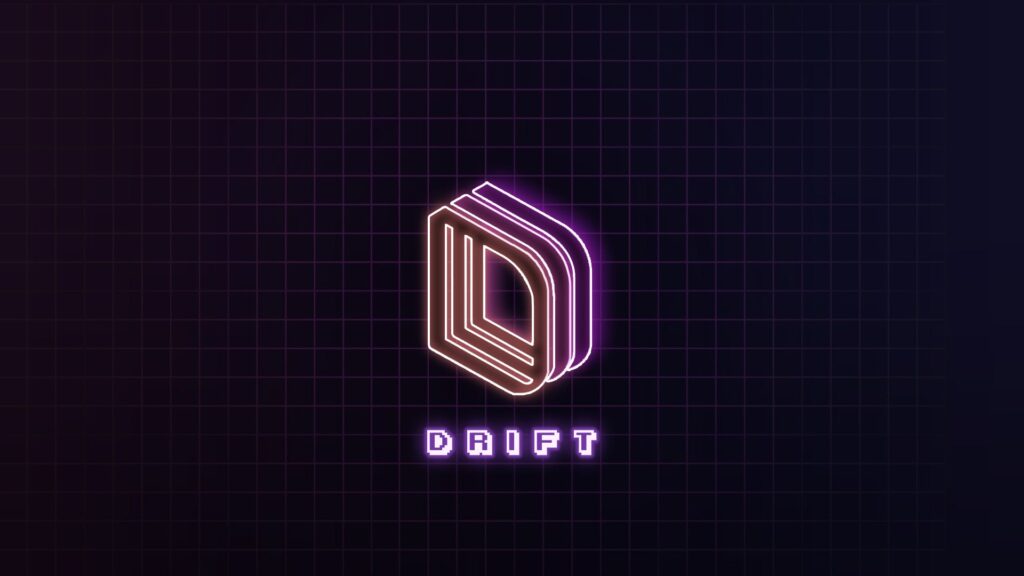
Drift is a decentralized exchange focusing on perpetual contracts, which can leverage positions up to 50x. This platform is designed for deep liquidity, allowing you to execute large orders efficiently.
Key Features of Drift:
- It supports a range of trading options, including spot, perpetual, and options trading across various crypto assets.
- Deploys a fully on-chain order book with a matching engine that promotes speed, security, and transparency.
- Utilizes a universal margin account, which enables margin to be shared across all positions and assets.
- Compatible with multiple blockchains, including Ethereum, Polygon, and Solana, allowing for a broad operational framework.
Performance and Popularity:
- Drift has a total value locked (TVL) exceeding $500 million, marking its rapid ascent in the perpetual trading market.
- Accommodates trading for over 20 assets, including major cryptocurrencies like BTC, ETH, MATIC, SOL, and DOGE.
- Ensures efficient and fast trading with low-latency order matching between 15 and 30 milliseconds and maintains transaction finality.
- Attracts support from well-known investors and partners such as Binance, Pantera Capital, Jump Crypto, and Mark Cuban.
By engaging with Drift, you participate in one of the most advanced and rapidly growing platforms for perpetual trading.
Injective Protocol
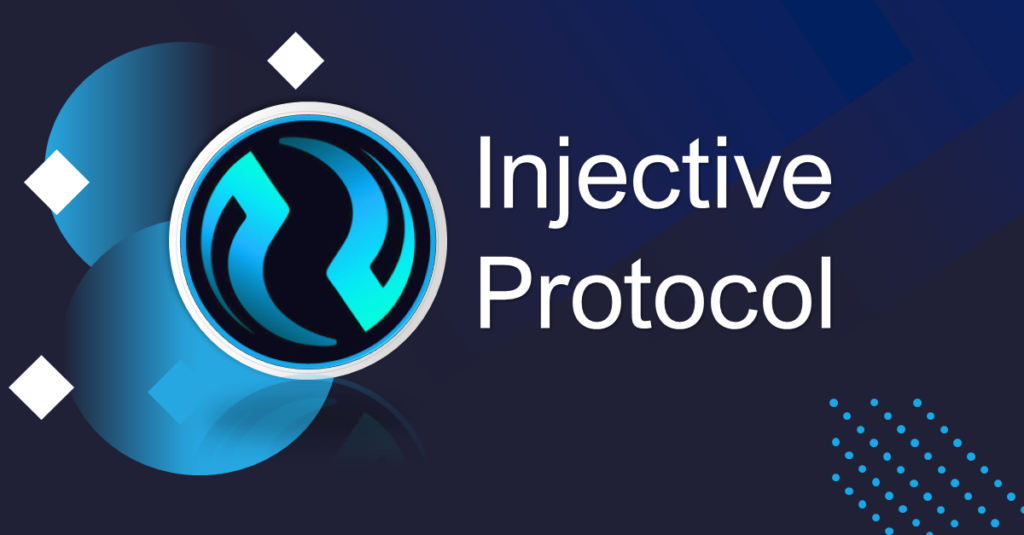
Injective Protocol is a pioneering decentralized exchange protocol that empowers you to trade a broad spectrum of assets, from cryptocurrencies to commodities and stocks, without depending on centralized intermediaries.
The versatility of its platform stems from the support of various trading mechanisms, including spot, futures, perpetual, and options trading on a multitude of layer one and layer 2 blockchains, notably Ethereum, IBC-enabled blockchains like Cosmos, and others like Solana.
By leveraging a Tendermint-based proof-of-stake consensus mechanism, Injective Protocol ensures instantaneous transaction finality coupled with remarkable scalability. This helps you execute trades rapidly, even during high market volatility.
Trading Flexibility:
- Create and trade numerous financial markets.
- Offers assets such as BTC, ETH, AVAX, DOT, and Land INK.
- Enables custom derivatives, heightening your trading experience.
Technical Advantages:
- Processes transactions swiftly at over 10,000 per second.
- Cost efficiency with less than $0.01 per transaction.
Governance and Security:
- INJ token allows the contribution to governance decisions.
- Facilitates staking for protocol security.
Community and Investment:
- Backed by esteemed investors: Binance, Pantera Capital, and others.
- $300 million in total Value locked, indicating user trust.
Asset Availability:
- More than 40 assets are available for trading.
Injective Protocol has rapidly become one of the most innovative platforms for decentralized derivatives, attracting significant investment and community support.
By engaging in the protocol, you gain access to advanced trading features typically reserved for professional-grade centralized platforms while maintaining the security and transparency of a decentralized system.
Vertex Protocol
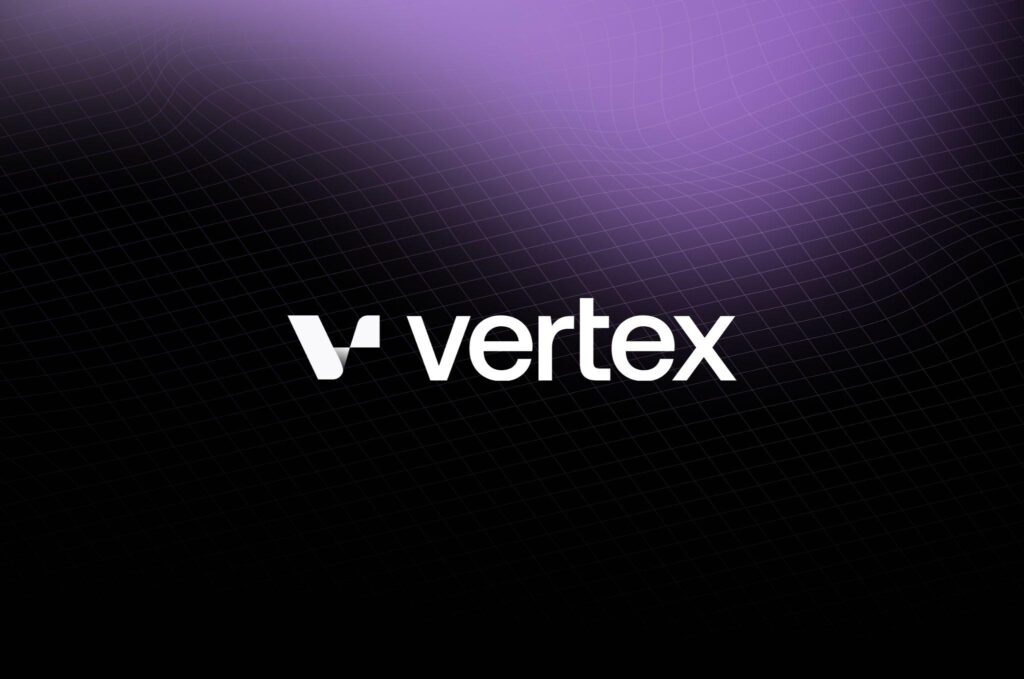
Vertex Protocol is transforming your trading experience with its innovative approach combining an Automated Market Maker (AMM) with an on-chain order book.
As a decentralized exchange (DEX) based on the Arbitrum L2 network, Vertex brings you the best of both worlds: the familiarity of centralized exchanges (CEXs) and the self-custody and efficiency of DeFi.
Key Features of Vertex Protocol:
- Offers a wide array of trading options, including spot, perpetual, and an integrated money market across more than 23 markets.
- Engages in a competitive, low trading fee model.
- Resistant to Miner-Extractable Value (MEV) thanks to its frequent batch auction order matching.
Benefits You Can Expect:
- The proprietary VRTX token enables you to stake, govern, and reap rewards, bolstering your involvement in the protocol’s future.
- An advanced on-chain order book and matching engine tailored for various markets: spot, perpetual, futures, and options.
Performance Indicators:
- A remarkable total value locked (TVL) surpassing $200 million.
- Supports popular assets such as BTC, ETH, LINK, UNI, and AAVE.
- Achieves lightning-fast order-matching execution (~30 milliseconds) with monthly volume exceeding $2 billion.
- Enjoy the backing of elite investors and partners like Binance, Pantera Capital, Jump Crypto, and Mark Cuban.
By choosing Vertex Protocol, you’re empowering your trading strategy with a platform dedicated to efficiency, security, and community governance.
Other Aspects of Decentralized Exchange For Crypto Futures Trading
When engaging in crypto futures trading on decentralized exchanges (DEXs), you should consider several important features beyond just the basic trading functionalities:
Smart Contracts: Your trades are executed by smart contracts, not by a centralized authority. This ensures that transactions are programmed without downtime, fraud, or interference.
Liquidity Pools: Critical to your trading experience, liquidity pools determine how easily you can enter and exit positions. A larger pool suggests that slippage is minimized, meaning your trades are closer to your intended entry and exit points.
Cross-Chain Capabilities: Some DEXs enable you to trade assets across different blockchains. This interoperability expands your trading possibilities and can potentially offer more competitive futures contracts.
Security: While DEXs remove the risk of a centralized point of failure, smart contract vulnerabilities can still pose a risk. It is crucial to use platforms with thoroughly audited intelligent contracts.
Anonymity: Your transactions do not require personal identification, allowing you to trade futures while preserving privacy.
Fees: There are no traditional brokerage fees, but network transaction fees known as gas still apply. Especially during periods of high demand, these fees can be substantial.
Here’s a brief overview to help you understand the fee structure of most DEXs:
- Trading Fees: A small percentage of the trade amount goes to liquidity providers.
- Gas Fees: Vary based on network congestion and the complexity of intelligent contract interactions.
BAwareness of these aspects enhances your trading strategy in decentralized future exchanges, providing a more comprehensive trading experience.
Interoperability and Bridges
In the realm of decentralized futures exchanges, interoperability is pivotal. It allows you to utilize assets across various blockchain networks seamlessly.
Bridges serve as the linchpin in this process, enabling the transfer of tokens between blockchains like Polygon, Binance Smart Chain (BNB Chain), Cardano, Fantom, and others.
Advantages of Bridges:
- Capital Efficiency: You can optimize your capital by accessing liquidity across multiple chains.
- Enhanced Functionality: Bridges allow you to engage in activities on a blockchain network where your assets were not originally issued.
Beware of Vulnerabilities:
Bridges have been targeted, with significant attacks leading to losses, as seen on the BNB Chain in 2022. Always ensure the security of your private keys when interacting with bridges.
Popular Bridges Mentioned:
- Synapse Protocol: Known for its robust multi-chain bridging capabilities.
- Cambridge by Celer Network: Offers cross-chain transactions between EVM and non-EVM networks.
Balancer on Multi-chain:
Balancer, typically utilized on Ethereum, has expanded to multiple chains, amplifying your options for decentralized trading with improved capital efficiency.
Centralized Platforms as Bridges:
Platforms like Coinbase sometimes function as an inadvertent bridge by supporting withdrawals and deposits on various networks, allowing inter-blockchain liquidity.
In summary, while bridges enhance your trading experience by fostering interconnected blockchain ecosystems, being aware of their vulnerabilities is crucial. Always prioritize security practices and be selective with the bridges you trust.
User Empowerment
In decentralized futures exchanges, you gain complete control over your assets.
Unlike traditional platforms, where third parties hold the power, decentralized exchanges operate without intermediaries.
Your transactions are executed directly through smart contracts, meaning only you can access your funds. This eliminates the risk of exchange hacks where you could lose your assets.
KYC (Know Your Customer) requirements are minimal or non-existent on most decentralized exchanges. This privacy aspect ensures that you can trade without revealing personal information, providing a layer of anonymity that is not available on centralized exchanges.
Governance Tokens play a crucial role in decentralized exchanges. As a holder, you possess an asset and a say in the platform’s future development decisions. The more tokens you hold, typically, the more voting power you have, aligning with the principle that the users should steer the exchange’s evolution.
Decentralized exchanges often incorporate an NFT market, enabling you to engage with non-fungible tokens. These unique digital assets can represent anything from collectibles to artwork and are becoming increasingly integrated with DeFi services.
| Feature | Benefit to You |
|---|---|
| Full Control | Direct management of your assets |
| No KYC | Enhanced privacy and quick access |
| Governance | Participation in decision-making |
| NFT Integration | Access to a broader asset spectrum |
Regarding security, these exchanges utilize the strength of blockchain technology, making them fundamentally secure. While no system is infallible, the risk of losing your assets to a centralized authority’s failure is significantly diminished.
Finally, an ideal decentralized exchange focuses on a user-friendly experience. Despite the complex technology running in the background, the platforms strive to present a clear and intuitive interface to navigate your trading activities confidently and efficiently.
Security and Privacy
In decentralized future exchanges, your security and privacy are of paramount importance.
Unlike centralized counterparts, decentralized exchanges (DEXs) typically offer a permissionless trading environment where you can transact without needing an intermediary or disclosing your identity, thus enhancing your privacy.
Smart Contracts: At the core of any DEX are the smart contracts, which autonomously execute trades and hold funds in escrow without human intervention. The transparent nature of smart contracts on the blockchain ensures that the rules are visible and unchangeable once deployed, contributing to the safety of your assets. However, always be aware of the risk of smart contract vulnerabilities, and only choose exchanges with audited and time-tested contracts.
Decentralization of Governance: Some DEXs pursue further decentralization through a decentralized autonomous organization (DAO), giving you and other users a say in future developments. Participation in a DAO can potentially lead to a more secure and community-focused ecosystem.
Key Players:
- KyberSwap: Known for its multi-chain accessibility, KyberSwap operates on the notion of liquidity pools and, through smart contracts, allows for secure, permissionless trading.
Security Measures: Always use DEXs that invest in robust security measures. Practices may include:
- Frequent security audits
- Open-source code for transparency
- Bug bounties to incentivize the identification of potential vulnerabilities
Remember, while DEXs remove the single point of failure that centralized exchanges have, the responsibility for security — like safeguarding your private keys — largely rests with you. It’s paramount to perform diligent research and utilize secure wallets in conjunction with trustworthy DEX platforms to maintain the privacy and safety of your assets.
Platforms and Chains
When exploring the landscape of decentralized futures exchanges, you’ll find that they operate across various blockchain networks, each offering unique benefits and capabilities.
Ethereum: As the most widely used blockchain for smart contracts, Ethereum hosts several key DEX platforms like Uniswap V3. With layers like Optimism, Ethereum scales better, offering more efficient transactions.
Solana: Renowned for its high-speed and low-cost transactions, Solana supports fast-paced trading environments on DEXs.
Binance Smart Chain (BSC) / BNB Chain: Binance’s blockchain network offers compatibility with Ethereum tools and a growing number of DEXs.
Avalanche: This blockchain is another hub for decentralized exchanges, famous for its rapid transactions and evolving DeFi ecosystem.
Polygon: With its efficient Layer 2 scaling solutions, Polygon enhances Ethereum DEXs by reducing fees and increasing speeds for traders like you.
Tron: Known for its efficient energy consumption, Tron is a viable alternative for cost-effective trading on DEXs.
Cardano: Hosting DEXs, Cardano stands out with its research-driven approach and focus on sustainability and scalability.
Celo: As a mobile-first blockchain platform, Celo facilitates access to decentralized exchanges and financial tools on the go.
KRememberthat each blockchain network has its traits regarding transaction speed, fees, user experience, and security. Your choice will likely weigh these factors based on your trading preferences and the specific attributes of the DEX you opt for.
Economic Considerations
The economic implications are critical when considering decentralized futures exchanges for cryptocurrency trading activities.
Assessing these platforms involves examining various financial aspects such as fees, transaction speed, and the total value locked (TVL), which indicate the liquidity available.
Fees: Most decentralized exchanges charge trading fees. These fees can vary widely, so choosing a low-fee exchange is necessary to enhance your profitability. Pay attention to the transaction fees, the costs paid to execute a trade, and any additional fees that may apply to future contracts.
Speed: The speed of transactions on a DEX can significantly impact your trading efficiency, especially in volatile markets. Faster transaction speeds allow for timely trades, reducing the risk of price slippage.
Total Value Locked (TVL): TVL is the sum of all digital assets deposited in the exchange’s smart contracts. A higher TVL indicates deeper liquidity, facilitating large trading volumes without significant price impacValueis. This is especially relevant when dealing with futures contracts where concentrated liquidity is vital for executing large orders.
Remember, while decentralized exchanges provide transparency and control over your digital assets, economic factors should always be considered to ensure a more secure and beneficial trading experience. Carefully evaluate the financial environment of a DEX before committing to trade futures contracts.
Governance and Compliance
In the landscape of decentralized futures exchanges, governance and compliance play crucial roles, distinctly different from that of their centralized counterparts (CEXs).
You interact with systems that, unlike CEXs, operate without a central authority overseeing their activities. Here, decisions are often made through decentralized autonomous organizations (DAOs), where you might have a say proportional to the number of governance tokens you hold.
When engaging with these platforms, understand that many do not implement traditional Know Your Customer (KYC) protocols. This stems from a permissionless ethos common in decentralized finance (DeFi), promoting a transparent and open financial ecosystem accessible to anyone, anywhere.
Decentralized exchanges (DEXs) are designed to operate with a level of transparency that can exceed that of centralized exchanges. Transactions and the codebase, typically, are publicly verifiable, allowing you to scrutinize the workings of the exchange you choose to trust with your assets.
However, this transparency does not eliminate the need for compliance with regulatory standards. As the regulatory landscape evolves, leading decentralized futures exchanges strive to balance remaining permissionless and align with legal frameworks to ensure longevity and user trust.
Remember:
- Decisions are often made via DAOs.
- Participation could be linked to governance tokens.
- Many DEXs forgo traditional KYC procedures.
- Exchanges aim for transparency and open access.
In your interaction with DeFi exchanges, staying informed of the governance models and compliance measures in place is of utmost importance for safeguarding your investments.
Market Analysis Tools
Having robust market analysis tools is crucial when you’re engaged in cryptocurrency trading on decentralized futures exchanges.
These tools provide you with real-time data and help you make informed decisions based on historical performance and current market trends.
News Aggregators:
Stay updated with the latest developments by using news aggregators. They compile articles, updates, and announcements from various sources, ensuring you have a comprehensive view of the crypto market.
CoinMarketCap:
CoinMarketCap is an essential tool that provides a broad overview of cryptocurrency market data, including price charts, trading volumes, market cap, and more. Use it to track cryptocurrencies’ performance and dive into specific token analytics.
Trading View Integration:
Look for exchanges that incorporate Trading View charts. These allow you to access a range of indicators and drawing tools to analyze market trends and potential price movements.
- Curve Finance and Raydium:
Platforms like Curve Finance and Raydium offer internal analytic tools specific to their ecosystems, which can be particularly useful if trading within these networks.
Real-Time and Historical Data:
Access to both real-time and historical data is critical for analyzing market directions and volatility. Use this data to spot trends and execute trades based on informed predictions.
- Alerts and Notifications:
Set up alerts for price movements, volume changes, or news events so you can react quickly to market shifts.
Remember, while these tools provide a wealth of information, your analysis, and risk management strategies are paramount when trading in the volatile crypto markets. Use these tools to complement your knowledge and trading style.
Frequently Asked Questions
In this section, you’ll find answers to common queries about decentralized futures exchanges, helping you navigate these platforms’ features, leverage, liquidity, and security.
What are the features to look for in a decentralized futures exchange?
When choosing a decentralized futures exchange, prioritize highly trustworthy platforms, robust security measures, and user-friendly interfaces. Key features should include transparent fee structures, diverse tradable assets, and advanced trading options like stop-loss and take-profit orders.
How does leverage work on decentralized exchanges?
On decentralized exchanges, leverage allows you to borrow funds to increase your trading position beyond your existing balance. The specific mechanisms can vary, but typically, you’ll be required to provide collateral in the form of cryptocurrency to access leverage. Always be aware of the risks, as leverage can amplify gains and losses.
Which decentralized exchanges offer the most liquidity for futures trading?
Decentralized exchanges with the highest liquidity for futures trading tend to have large user bases and substantial total value locked (TVL). As of the last update, exchanges like Uniswap have been noted for significant TVL, indicating a more liquid market that can accommodate sizeable futures trades.
How can I evaluate the security of a decentralized futures exchange?
To assess the security of a decentralized futures exchange, review its bright contract audValuestory, any recorded incidents of security breaches, and the measures in place to protect against hacks. It’s also essential to research the exchange’s governance structure and how it contributes to the overall security and stability of the platform.
Conclusion
When navigating decentralized futures exchanges, prioritize the platforms aligning with your trading preferences and security expectations. With various competitors in the DeFi space, your choice should hinge on a balance among assorted factors.
Critical Considerations for Your Selection:
- Security: Ensure the platform utilizes robust smart contracts to safeguard your tokens.
- User Experience: Opt for exchanges with an intuitive interface to facilitate your trading activities.
- Trading Volume and Liquidity: High liquidity equates to easier entry and exit points for your cryptocurrency transactions.
- Supported Tokens: Various available cryptocurrencies can significantly influence your trading strategies and portfolio diversification.
DeFi Integration:
- Look for platforms that offer additional DeFi services, bolstering the overall utility of your investments.
By selecting a platform that resonates with your trading needs, you position yourself to harness the full potential of decentralized financial instruments. Exercise due diligence and continuously monitor the performance and trustworthiness of your chosen exchange.
Remember, the proper decentralized futures exchange provides competitive fees and robust security and aligns with the evolving landscape of DeFi and the array of available cryptocurrencies.
Stay informed, stay secure, and let your investments in the decentralized finance sphere flourish responsibly.
